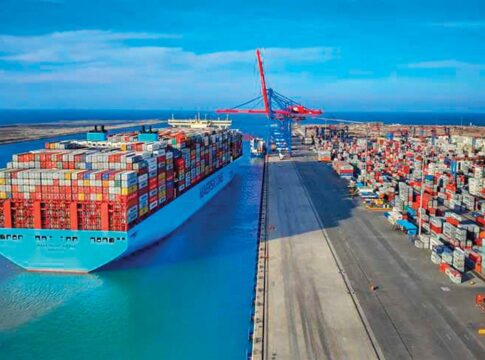Djibouti’s recent offer to share the management of the port of Tadjoura with Ethiopia has drawn significant attention in the Horn of Africa, highlighting the complex dynamics of regional relations. The proposal, aimed at easing tensions between Ethiopia and Somalia, raises questions about Ethiopia’s approach to resolving disputes within the continent.
Djibouti Foreign Minister Mahamoud Ali Youssouf made it clear that while the port would not be sold or ceded, joint management could benefit both nations. “What we have proposed to the Ethiopians is not to sell the port of Tadjoura. There has never been any question of ceding or selling the port,” Youssouf emphasized, demonstrating Djibouti’s commitment to retaining its sovereignty over this strategic asset.
The $60-million Tadjoura port, operational since 2017, is a crucial hub with access to the Gulf of Aden and the Red Sea, one of the world’s busiest maritime trading routes. Given Djibouti’s reliance on international trade, maintaining Ethiopian business is vital for its economy. However, Ethiopia’s broader regional strategies suggest a pattern of assertive moves that sometimes disregard the sovereignty and interests of its neighbors.
The January 1 deal between Ethiopia and Somaliland, wherein Somaliland agreed to lease a 20-kilometer stretch of coast for 50 years in exchange for Ethiopian recognition, underscores Ethiopia’s aggressive posture. While Somaliland, with its 4.5 million people, has long sought international recognition since its 1991 declaration of independence, Addis Ababa’s conditional recognition has not been officially confirmed.
Ethiopia’s history of stormy relations with both Somalia and Eritrea further illustrates its contentious approach. The wars with Somalia in the late 20th century and the 1998-2000 border conflict with Eritrea, which resulted in Ethiopia losing access to Eritrean ports, paint a picture of a nation willing to engage in conflict to assert its dominance. Post-war, Ethiopia redirected most of its sea trade through Djibouti, solidifying the latter’s strategic importance.
Ethiopian Prime Minister Abiy Ahmed’s administration has not yet commented on Djibouti’s port-sharing offer. However, the silence from Addis Ababa may be indicative of a broader strategy where Ethiopia prioritizes its national interests over cooperative regional diplomacy.
In conclusion, while Djibouti’s proposal for the joint management of the Tadjoura port is a pragmatic move towards regional stability, Ethiopia’s history and recent actions suggest a tendency towards aggressive, non-cooperative strategies. This approach raises concerns about the respect for sovereignty and long-term peace in the Horn of Africa. As Ethiopia continues to navigate its regional ambitions, the balance between dominance and diplomacy will be crucial for the stability and prosperity of the entire region.


